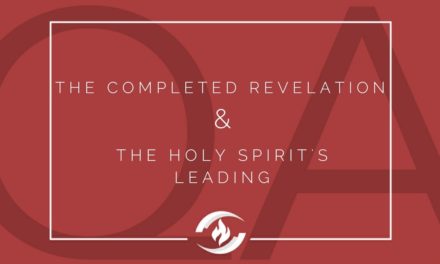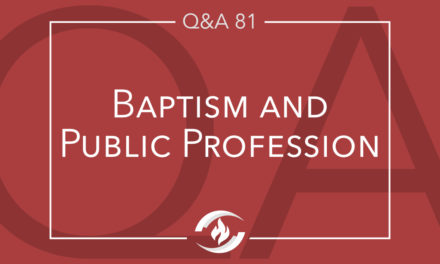Q.
How do you determine when views about the gospel are a heretical view of the gospel in the sense of Galatians 1:6-9? By this, I have in view primarily the various views about the nature of faith and of repentance or the nature of assurance. This is such critical importance given the popularity of Lordship salvation and how we as Christians should associate or not associate with proponents of such a view.
Jacob
A.
Hello Jacob,
Thanks for being willing to ask this question. The Gospel does get confused through some articulations of faith, repentance, Lordship Salvation and assurance.
The evangelical message is salvation by grace through faith in Christ alone. This, of course, is based on the finished work of Christ, who died for us and rose again. The focus of the Gospel is on Jesus, based on His finished work.
There is no debate that Jesus is Lord. The debate revolves around what is the condition for salvation. The Gospel is blurred when:
- Faith and/or repentance are articulated in a way that switches the focus from the object of faith—Jesus—to the subject of faith—man.
- Faith is made something other than, or more than, dependence on Jesus.
- Repentance is made something more than the flip side of faith, which makes repentance a work.
- Assurance is made to be by works rather than faith.
Salvation is not your commitment to change (self-dependence), but your dependence on the changer—Jesus (God-dependence). Faith is not a work, but dependence on the worker—Jesus. The condition for salvation is dependence on Jesus—plus nothing, minus nothing. If you twist the condition to be or include your commitment to change or your willingness to change, then you have switched the object of faith to yourself from Jesus.
However, many who blur the condition of salvation do so unwittingly. In other words they would subscribe wholeheartedly to salvation by grace through faith in Christ alone. In that sense they are orthodox concerning the Gospel. Sadly, their confusing articulations of the Gospel undermine their own orthodoxy.
So it is not a clear matter regarding associations. While works, or works-plus faith, paradigms regarding the Gospel fall clearly in the “another gospel” category, and should be treated as such, those who blur the articulation of faith, repentance, and so forth, but subscribe to the “by grace through faith” paradigms, are in a different category. This is confusing and we need wisdom from the Spirit to know how to deal with it rightly from an associational standpoint. It would seem that one’s emphasis versus occasional confused statements would make a difference in how we deal with it.
John










